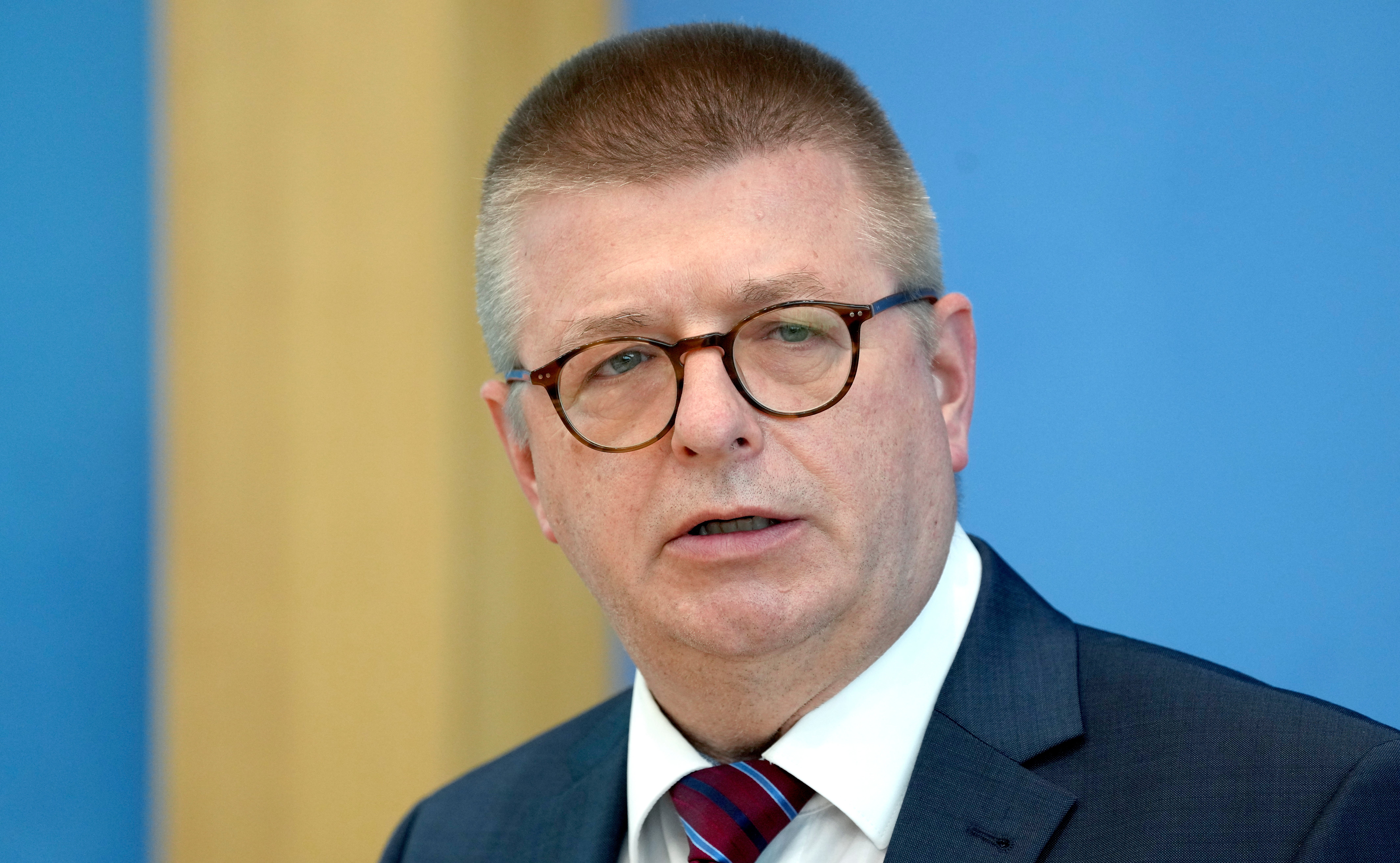German intel chief: efforts to influence vote at 'low level'
Germany's domestic intelligence chief says authorities see an interest on some countries’ part in influencing the national election in September, but so far such activities are at a “low level.”

Your support helps us to tell the story
From reproductive rights to climate change to Big Tech, The Independent is on the ground when the story is developing. Whether it's investigating the financials of Elon Musk's pro-Trump PAC or producing our latest documentary, 'The A Word', which shines a light on the American women fighting for reproductive rights, we know how important it is to parse out the facts from the messaging.
At such a critical moment in US history, we need reporters on the ground. Your donation allows us to keep sending journalists to speak to both sides of the story.
The Independent is trusted by Americans across the entire political spectrum. And unlike many other quality news outlets, we choose not to lock Americans out of our reporting and analysis with paywalls. We believe quality journalism should be available to everyone, paid for by those who can afford it.
Your support makes all the difference.German authorities see an interest on some countries' part in influencing Germany's national election in September, but so far such activities are at a “low level,” the domestic intelligence chief said Wednesday.
Germany will elect a new parliament in a Sept. 26 vote that will determine who succeeds Chancellor Angela Merkel She is not seeking another term after nearly 16 years in charge.
Thomas Haldenwang, the head of the BfV domestic intelligence agency, said there have been varied efforts to exert influence by other countries in previous German elections and “we definitely see the interest of certain states in exerting influence on this year's parliamentary election — there are indications of this.” He didn't identify those countries.
He told reporters in Berlin that “the intensity of these measures is still at a low level at the moment” but authorities have observed hacking attempts that could be preparations to leak real or fake material at a later point.
Haldenwang said that, since February, his agency has seen “intensive attack activities by a cyber-actor in Germany” which likely have an intelligence background, focusing on phishing attempts on the private email accounts of federal and state lawmakers and their staff. But he said that very few of those attempts were successful, and in cases where they were little damage appears to have been caused.
Germany's top security official, meanwhile, said that he doesn't consider the state-controlled Russian television channel RT a “hybrid threat.”
“It's a normal television broadcaster that treats us in an unfriendly way, but every mature citizen can deal with that,” Interior Minister Horst Seehofer said. “I'm no friend of Russia Today, so that you understand me correctly, but it's propaganda — anyone can see through that.”